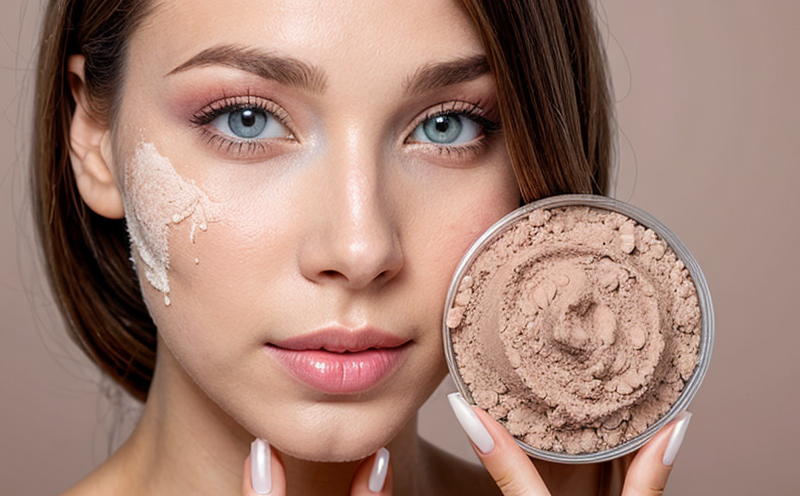In Vitro Skin Sensitization Testing for Beauty Products
The demand for safe and effective beauty products is driving the need for rigorous testing to ensure compliance with international standards. In vitro skin sensitization testing offers a robust alternative to traditional animal-based methods, providing reliable data on potential allergens without causing harm to animals.
Our laboratory specializes in performing in vitro tests that predict how likely it is that a substance will cause an allergic reaction when applied to the skin. This service aligns perfectly with regulatory requirements set by agencies such as the European Union’s Cosmetics Regulation (EC 1272/2006). By offering this testing, we support beauty companies in meeting these stringent standards and ensuring their products are safe for consumers.
The test involves exposing human cell cultures derived from skin or blood to potential allergens. These cells can then be monitored for changes indicative of an immune response, which suggests the likelihood that the substance will cause sensitization upon repeated exposure. This approach not only enhances product safety but also contributes significantly towards reducing animal testing.
Our skilled team uses advanced techniques and state-of-the-art equipment to ensure accurate results. The process typically begins with careful selection and preparation of the test samples followed by incubation in controlled environments designed to mimic real-world conditions as closely as possible. Post-exposure analysis involves sophisticated microscopy, flow cytometry, or bioassays depending on the specific requirements.
It's worth noting that while this method provides valuable insights into allergenic potential, it does come with its limitations. For instance, some reactions may not fully replicate those seen in vivo conditions due to differences between cell cultures and intact living tissues. However, when used correctly alongside other assessments like patch testing or clinical studies, these tests form a crucial part of overall product safety evaluation.
In summary, our in vitro skin sensitization testing service represents an important step forward both scientifically and ethically in the pursuit of safer cosmetics. It allows companies to develop innovative formulations while adhering strictly to global regulations.
- European Union’s Cosmetics Regulation (EC 1272/2006)
- ASTM E2539 Standard Practice for Testing Skin Irritancy and Sensitization Using Human Epidermis
- OECD Test Guideline 442C: Repeated Dose-28 Day Oral Toxicity Study in Rodents
- FDA Cosmetics Regulation (CFR Title 21 Part 730)
Scope and Methodology
The scope of our in vitro skin sensitization testing service includes evaluating the potential for allergenicity of new ingredients, formulations, or finished products intended for use on human skin. This assessment helps manufacturers identify compounds that might trigger allergic reactions if used repeatedly.
The methodology involves several key steps:
- Sample Preparation: We start by preparing the test samples according to predefined protocols ensuring they represent the product accurately.
- Incubation: The prepared samples are then incubated under controlled conditions that simulate typical usage scenarios, allowing us to observe any changes over time.
- Data Analysis: Using advanced analytical tools and techniques, we analyze the collected data to determine whether there has been a significant increase in cell activity or other indicators of sensitization.
This comprehensive approach ensures that every aspect of the testing process is conducted rigorously, leading to reliable outcomes. Our experienced scientists ensure each step adheres strictly to relevant international standards like ISO 10993-43 and ASTM E2539.
Customer Impact and Satisfaction
By choosing our in vitro skin sensitization testing service, customers benefit from several advantages:
- Enhanced Product Safety: Our tests provide critical information about potential allergens early in the development process, allowing for timely adjustments to formulations.
- Compliance with Regulations: With increasing pressure on industries to adopt more humane testing methods, our service helps ensure compliance with EU regulations and other global standards.
- Reduced Development Time: Early identification of problematic ingredients can lead to faster product launches without compromising quality.
- Improved Reputation: Demonstrating a commitment to ethical practices strengthens brand reputation among consumers who value cruelty-free options.
We strive for high levels of customer satisfaction by offering personalized service tailored to individual needs, clear communication throughout the process, and timely delivery of results. Feedback from satisfied clients attests to our ability to meet expectations consistently across all aspects of our testing services.
International Acceptance and Recognition
In vitro skin sensitization testing is widely accepted internationally due to its efficacy in predicting allergenicity while adhering to ethical standards. Here’s a list highlighting some key international recognitions:
- OECD (Organization for Economic Cooperation and Development): Recognized as an appropriate method under OECD Test Guideline 442C.
- EU Cosmetics Regulation: Explicitly mentioned in the EU’s Cosmetics Regulation (EC 1272/2006).
- FDA: Acknowledged by the U.S. Food and Drug Administration as a suitable approach for assessing allergenicity.
- ISO: Included within ISO 10993-43 guidelines, which outline requirements for biocompatibility assessment including sensitization potential.
The widespread acceptance of this testing method reflects its role in advancing scientific understanding and regulatory compliance worldwide. It continues to evolve through continuous research and development efforts aimed at improving accuracy and reliability further.





